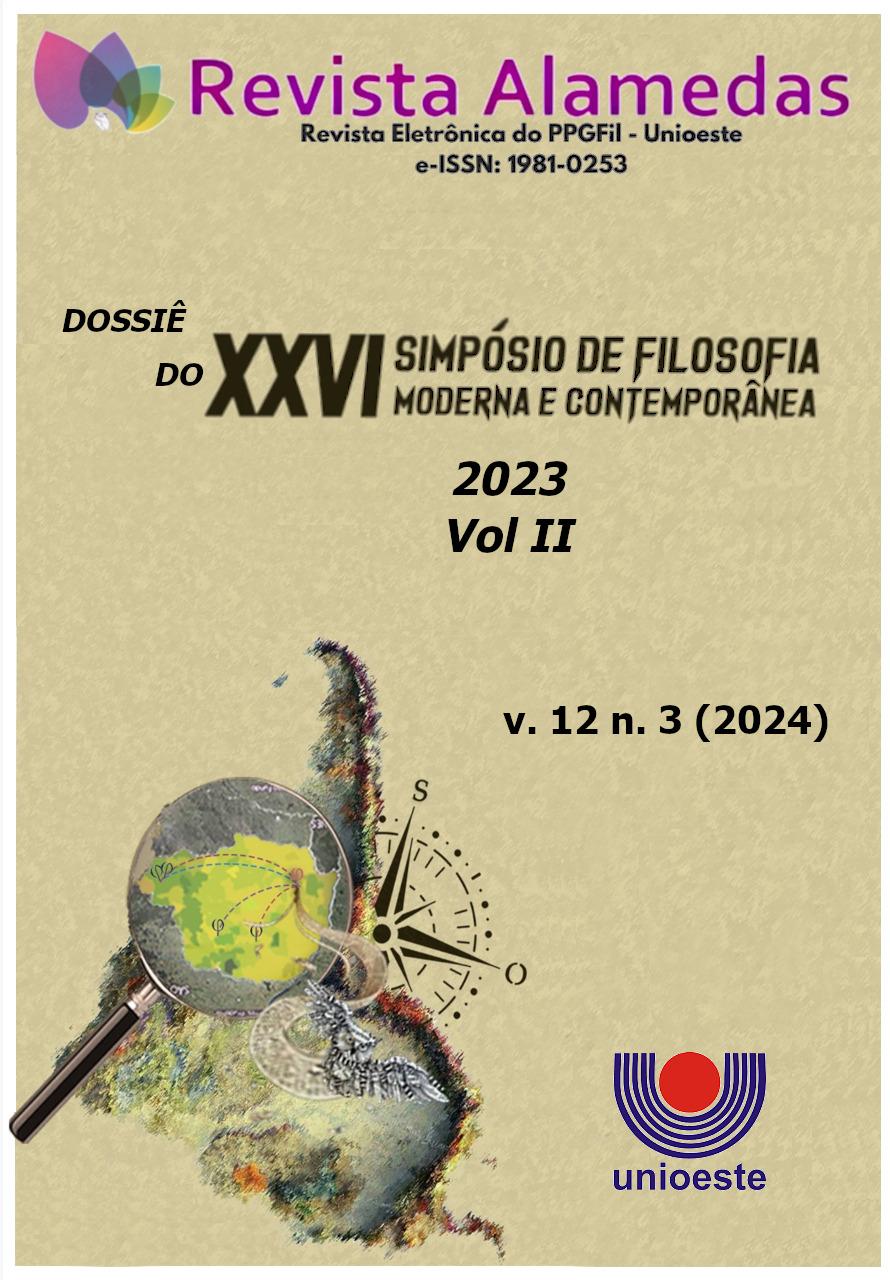The finitude's "viscosity", an enigma in light of Sartre in Being and Nothingless
um enigma a luz de Sartre em O Ser e o Nada
DOI:
https://doi.org/10.48075/ra.v12i3.33096Keywords:
Sartre, Morte, Finitude, Heidegger, MarcelAbstract
In the 1945 conference, Sartre brought two critical figures to the scene of philosophical debate: on the one hand, the marxists censorships that considered “existentialism” a purely bourgeois, metaphysical, idealist expression; on the other way, a christian, conservative position, diagnosing his philosophy as the most infamous satanic, demonic and apologetic caricature of a world without God, without morals and without principles. Le repas est prêt! During this debate, the french sensationalist media exacerbates theses of Being and Nothingness (which, by the way, has not even read it) to the point of completely adulterating its meaning and scope. This viscosity is seen as a reaction from readers when confronted with freedom, anguish, helplessness and, above all, with the nakedness of being a free mortal. The purpose of this work is to replace such viscosity outside of a negative adjective, pari passu, to the stigma of finitude. This other theme unfolds from an excerpt in Being and Nothing (2015). He projects, alongside the grooves of incomprehension, a possibility of phenomenological-existential description. This becomes possible through a fruitful dialogue with corollary authors of the philosophical tradition: Heidegger (2015), cited in Sartre's text (being-toward-death) and Marcel (1981; 2005), surreptitiously noticeable in a letter, By the way, enlightening. The aim is to confront these tensions in the arrangement of Sartre's text with the aim of opening paths to a more productive and purposeful dialogue. We will finally show that Sartre situates finitude in the light of the human condition, entirely helpless, but, at the same time, responsible from a humanitarian point of view.
Downloads
Published
How to Cite
Issue
Section
License
Copyright (c) 2024 Alamedas

This work is licensed under a Creative Commons Attribution-NonCommercial-ShareAlike 4.0 International License.
Aviso de Direito Autoral Creative Commons
Política para Periódicos de Acesso Livre
Autores que publicam nesta revista concordam com os seguintes termos:
1. Autores mantém os direitos autorais e concedem à revista o direito de primeira publicação, com o trabalho simultaneamente licenciado sob a Licença Creative Commons Attribution que permite o compartilhamento do trabalho com reconhecimento da autoria e publicação inicial nesta revista.2. Autores têm autorização para assumir contratos adicionais separadamente, para distribuição não-exclusiva da versão do trabalho publicada nesta revista (ex.: publicar em repositório institucional ou como capítulo de livro), com reconhecimento de autoria e publicação inicial nesta revista.
3. Autores têm permissão e são estimulados a publicar e distribuir seu trabalho online (ex.: em repositórios institucionais ou na sua página pessoal) a qualquer ponto antes ou durante o processo editorial, já que isso pode gerar alterações produtivas, bem como aumentar o impacto e a citação do trabalho publicado (Veja O Efeito do Acesso Livre).
Licença Creative Commons
Esta obra está licenciada com uma Licença Creative Commons Atribuição-NãoComercial-CompartilhaIgual 4.0 Internacional, o que permite compartilhar, copiar, distribuir, exibir, reproduzir, a totalidade ou partes desde que não tenha objetivo comercial e sejam citados os autores e a fonte.


